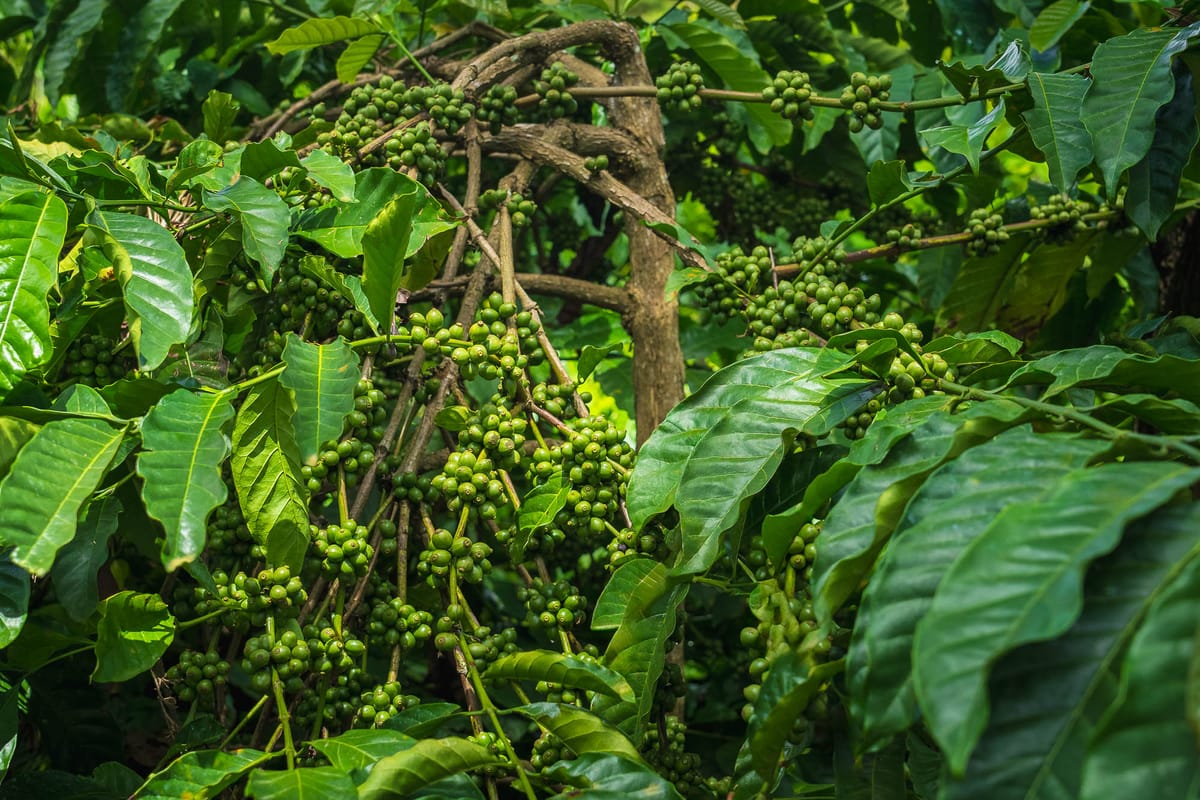Sound and Silence in Coffee Country
Vagaries of weather might diminish the coffee, but they can't take away the green hills and trees of Malnad and the quiet of the country.

I enjoyed yesterday’s 220-kilometre drive from Bangalore to my plantation in Malnad, watching plains that have sprung back to life. The monsoons arrived late this year and hovered, refusing to touch the parching earth. The amount of rain that finally did come down has left the terrain glinting many shades of green.
Soon as the plains end, the hills begin, covered in coffee estates. The leaves on the coffee plants shone like they’d been oiled.
Errant rain continually exasperates coffee planters, sometimes laying waste an entire year’s toils. A spurt in prosperity in the broader world has brought growers new opportunities to profit from their estates nestling in the green hills of Malnad — in the exquisitely quiet countryside. The homestay business, for example. Such a hospitality enterprise has sprung within earshot of us — as I learned on this trip.
Sound travels far in Malnad. Waking at midnight, I thought it was a generator bothering me, perhaps powering a pump to draw water from a tank somewhere. It’s not usual here to pull water after dark. Post sundown, the plantation is handed in full to the night for the night to perform its miracles and mysteries with it.
It was a strange sound, rising and falling in a narrow band, devoid of direction, with no apparent rhythm, distant, not so loud but loud enough to be a nuisance. It was without a doubt sound made and delivered by machine.
I woke several times. It was always the same sound, and it was still playing when I got out of bed at my usual time. I waited a courteous while and called the plantation supervisor. His home lies on the western verge of our property.
“Where’s the noise from?” I asked.
“It’s coming from …,” he told me the name of the plantation—not far, not near, just one plantation between us.
“Why is he running his generator all night?”
“That thing is not a generator, sir,” he said, the lightest trace of amusement coming from his voice heavy with morning grog. “It’s a kind of music. I called them last night. They wouldn’t answer.”
On a bare patch on his plantation, that neighbour has pitched tents, set up music, log fire, and plenty of room for dancing. He sends into the cool night hot chicken and warm roti for the dozens of folks who arrive at his weekend getaway on Saturdays. They dance all night, turn in at breakfast, wake up for lunch, and leave for Bangalore.
I know that planter. I’d gone to his house on a neighbourly errand in the early days after I’d bought my plantation. At his gate, when I was leaving, his son asked me if I could give him a ride to Ballupet, from where he planned to hop on a bus to Bangalore.
The young man has a job in the city, a lowly one for a well-off planter’s son. “I hate it here, uncle,” he told me, speaking in Kannada. “Especially in the rainy season. There’s nothing to do in this place. All day, all night, the rain will be dripping, and the cicada will be sawing.”
He is managing the weekend party business, I learnt later in the morning.
I suffer from an acute allergy to man-made noise. But the birds on the estate demonstrated a greater aversion to it. All day, they were silent, as though an eclipse was upon them. They couldn’t have slept last night, I imagine. They sulked in the concealments among the branches and would’ve missed many a worm during the morning’s opening hour that is so rich in proverbs.
I warmed to the thought of those lucky worms. I always muse on Creation being all about life feeding on life, accompanied by terror and pain. I let that feeling pass and allowed my love of birds to come surging back.
It’s evening now, and the partying Bangaloreans would be back home. Tonight, the night will reclaim its right, and the quiet of Malnad will rule. Come morning, the birds will awaken to a feast after a fast.
And I’ll bask in the silence that brings me to Malnad.